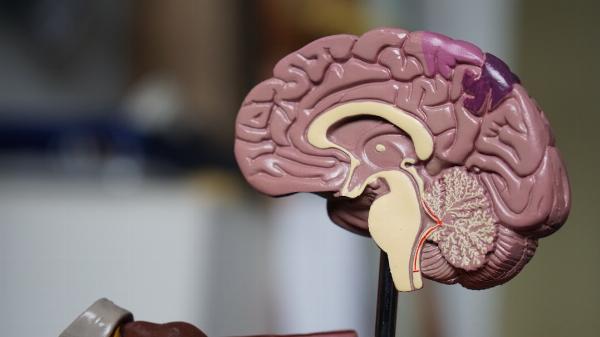The Role of Nicotinamide Riboside in Supporting Brain Health and Cognitive Function

Strong 8k brings an ultra-HD IPTV experience to your living room and your pocket.
The pursuit of maintaining brain health and enhancing cognitive function is a universal concern, particularly as we age. Nicotinamide Riboside (NR), a form of vitamin B3, has emerged as a promising compound in the realm of neuroscience and gerontology. Its potential benefits span from supporting neural health to possibly preventing neurodegenerative diseases.
Scientific research unravels the mechanisms through which NR may affect the brain. In this article, we delve into the science of Nicotinamide Riboside and its implications for cognitive enhancement and neuroprotection.
The Science Behind Nicotinamide Riboside and Neural Health
Nicotinamide Riboside is pivotal in producing nicotinamide adenine dinucleotide (NAD+), a critical coenzyme in all living cells. NAD+ is essential for energy metabolism and is particularly important in brain cells, which are highly energy-dependent. As the brain ages, the levels of NAD+ naturally decline, leading to reduced cellular metabolism and impaired cognitive function.
The supplementation of Nicotinamide Riboside boosts NAD+ levels in the brain. This uptick in NAD+ availability helps support the energy demands of neurons and glial cells, contributing to the overall health of neural networks. The enhanced energy metabolism aids in maintaining the integrity of synaptic plasticity, which is vital for learning and memory.
Furthermore, Nicotinamide Riboside is found to activate a group of proteins called sirtuins. These proteins are key in cellular health, including DNA repair, inflammatory response regulation, and stress resistance. By activating sirtuins, NR supports the brain's ability to cope with oxidative stress and age-related genetic changes that could lead to neuronal damage.
Research also indicates that NR could be instrumental in generating new brain cells, a process known as neurogenesis. Animal studies reveal that increased NAD+ leads to enhanced neurogenesis in the hippocampus, the brain area associated with memory and learning. While additional studies are needed to fully understand this process, the implications for cognitive health are substantial.
Enhancing Cognitive Abilities Through Nicotinamide Riboside Supplementation

The brain's cognitive abilities—memory, attention, and executive functions—are vital for daily life. As we age, it is natural for our cognitive functions to diminish, impacting an individual's quality of life. Nicotinamide Riboside shows promise in guarding against this decline and possibly reversing it. Through the replenishment of NAD+ levels, NR appears to enhance the brain's cognitive capacity.
Clinical trials involving Nicotinamide Riboside have reported improved cognitive performance among participants. The supplementation led to heightened mental clarity, better concentration, and enhanced memory recall. These findings encourage those seeking to maintain or improve their cognitive function, especially as they age.
These studies suggest that NR may have significant potential in addressing cognitive decline associated with neurological conditions. For individuals already experiencing age-related cognitive impairments, NR supplementation could offer a new avenue for intervention. Its neurocognitive benefits might help maintain an individual’s independence and mental acuity longer into their senior years.
Approaching Nicotinamide Riboside supplementation with a scientific and measured mindset is crucial. While preliminary results are promising, ongoing research will yield a clearer picture of its utility as a cognitive enhancer. As with all supplements, consulting with healthcare professionals is recommended before beginning any new regimen.
The Impact of Nicotinamide Riboside on Age-Related Cognitive Decline
Forgetfulness, slower processing speeds, and challenges with multitasking are common manifestations of age-related cognitive decline. Nicotinamide Riboside supplementation may protect against this decline by boosting NAD+ levels, potentially mitigating some of the adverse effects of aging on the brain.
The role of NAD+ in aging is a key focus of contemporary longevity research. Increased NAD+ appears to mimic the effects of caloric restriction, a well-documented method of slowing the aging process. Through this mimicry, NR could help sustain the resilience of brain cells against accumulative damage over time, which would otherwise lead to cognitive decline.
Yet, other factors contributing to age-related cognitive decline include mitochondrial dysfunction and reduced vascular health within the brain. Nicotinamide Riboside has the potential to mitigate these age-related challenges as well. By enhancing mitochondrial function and promoting cellular respiration, NR supports the brain's energy production, foundational for maintaining cognitive processes.
However, embracing a multi-faceted approach to preserve cognitive health in the golden years remains the most prudent strategy. This includes supplementation, engaging in mentally stimulating activities, maintaining social connections, and managing cardiovascular risk factors. As part of this comprehensive approach, Nicotinamide Riboside holds promise in supporting cognitive longevity.
Overall, Nicotinamide Riboside is a promising compound with multifaceted benefits for brain health and cognitive function. Its ability to boost NAD+ levels and support neural energy metabolism holds significant potential in mitigating age-related cognitive decline. Embracing Nicotinamide Riboside supplementation within a comprehensive approach to cognitive health may offer individuals a promising avenue for maintaining cognitive longevity as they age.
Note: IndiBlogHub features both user-submitted and editorial content. We do not verify third-party contributions. Read our Disclaimer and Privacy Policyfor details.







